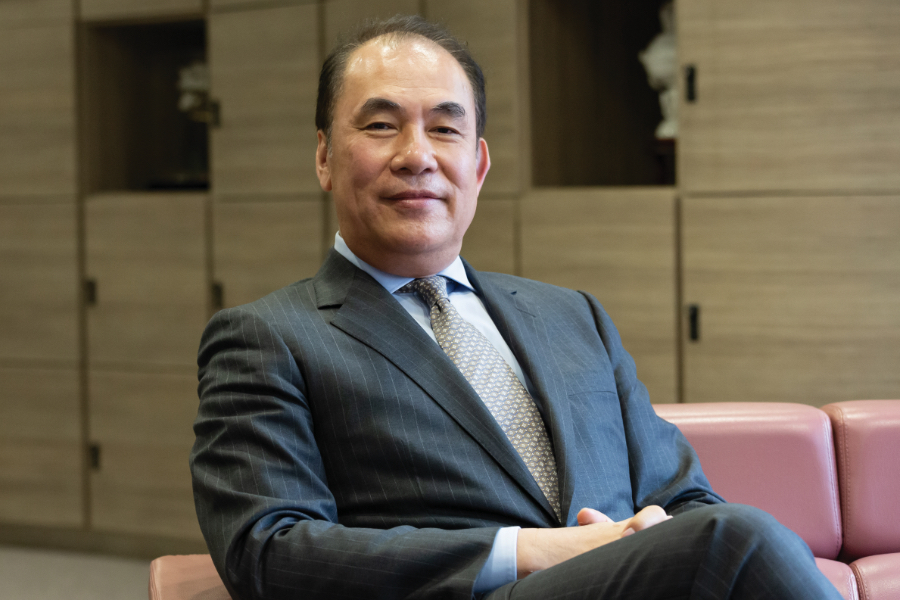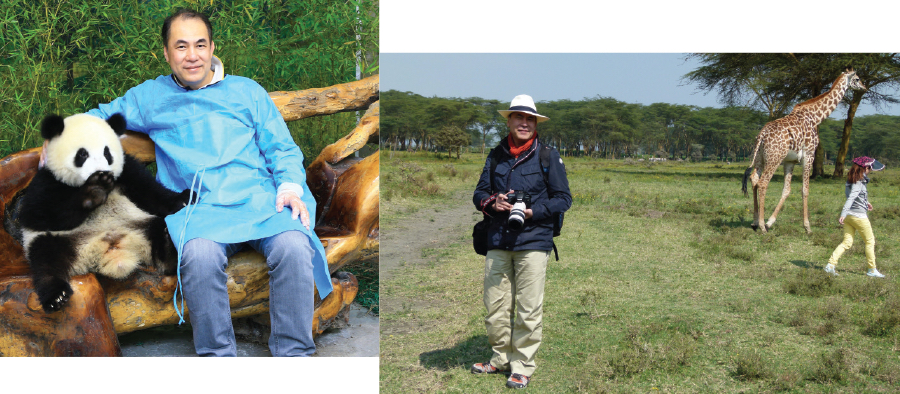New HA Board Member
Hardware and software sustainability in hospital development

Registered professional engineer Billy Wong recognises that the development of hospital buildings is a crucial element of healthcare services. As a new member of the Hospital Authority (HA) Board, he opines that it is essential to ensure the sustainability of both software and hardware to reduce the life cycle cost of infrastructure and to maintain stability in healthcare services.
Having been involved in a number of major infrastructure projects, including the import of water supply from China and the development of Chek Lap Kok airport project, Billy says the hospital development and improvement projects under the two 10-year Hospital Development Plans of HA are critical long-term investments. Apart from improving infrastructure to meet the rising demand for healthcare services, it is important to reserve land and space for future development, particularly in this tiny and densely-populated city. It is essential for both software and hardware to be sustainable so that the patient services are not affected by renovations and the life cycle cost of hospitals is under control.
Despite the importance of bricks and mortar, Billy stresses that medical professionals are at the very heart of any hospital and of the entire healthcare system. “I am not a healthcare or public health expert, but I perceive that both construction and healthcare professions are closely related to people’s livelihoods, and there can be no mistake,” he says. “When a mistake occurs in construction – take a bridge collapsing as an example – it is an absolute disaster and casualties are inevitable. Therefore, I strongly believe good talent management is key to maintaining a high level of service quality.”
When Billy was the Chairman of the Construction Industry Training Board, he conducted a survey and found that young people were reluctant to join the industry because of the negative stereotype of construction workers as dirty, rude individuals who had difficulty communicating with the opposite sex, and were not recognised by parents. In response, Billy strived to improve the image of construction workers, enhance the environment and occupational safety levels at construction sites and develop workers’ progression pathways, which have gradually attracted more young people joining the industry. Billy hopes to draw on this experience to help HA further improve the working environment in hospitals, to encourage and support employees taking part in scientific research projects, and to promote doctor-patient communications. This approach, he believes, will raise job satisfaction of healthcare workers and help attract and retain talents to ease the manpower shortage.
Having been involved in a number of major infrastructure projects, including the import of water supply from China and the development of Chek Lap Kok airport project, Billy says the hospital development and improvement projects under the two 10-year Hospital Development Plans of HA are critical long-term investments. Apart from improving infrastructure to meet the rising demand for healthcare services, it is important to reserve land and space for future development, particularly in this tiny and densely-populated city. It is essential for both software and hardware to be sustainable so that the patient services are not affected by renovations and the life cycle cost of hospitals is under control.
Despite the importance of bricks and mortar, Billy stresses that medical professionals are at the very heart of any hospital and of the entire healthcare system. “I am not a healthcare or public health expert, but I perceive that both construction and healthcare professions are closely related to people’s livelihoods, and there can be no mistake,” he says. “When a mistake occurs in construction – take a bridge collapsing as an example – it is an absolute disaster and casualties are inevitable. Therefore, I strongly believe good talent management is key to maintaining a high level of service quality.”
When Billy was the Chairman of the Construction Industry Training Board, he conducted a survey and found that young people were reluctant to join the industry because of the negative stereotype of construction workers as dirty, rude individuals who had difficulty communicating with the opposite sex, and were not recognised by parents. In response, Billy strived to improve the image of construction workers, enhance the environment and occupational safety levels at construction sites and develop workers’ progression pathways, which have gradually attracted more young people joining the industry. Billy hopes to draw on this experience to help HA further improve the working environment in hospitals, to encourage and support employees taking part in scientific research projects, and to promote doctor-patient communications. This approach, he believes, will raise job satisfaction of healthcare workers and help attract and retain talents to ease the manpower shortage.
